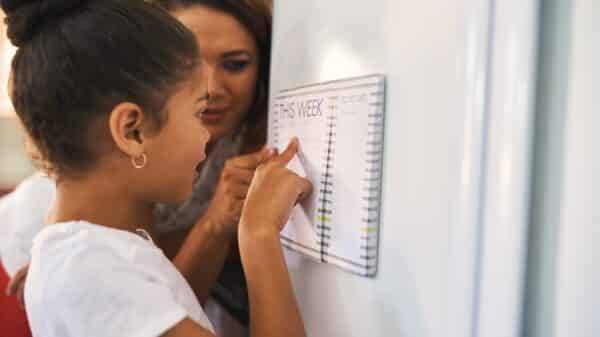The changing landscape of family size in the United States has become a topic of considerable discussion and reflection. Over the last few decades, the average number of children per family has notably decreased, reflecting broader societal shifts. As of 2023, the typical family in the U.S. has about 1.94 children, down from 2.33 in 1960. Additionally, the average family size has diminished from nearly four members in 1960 to around three by 2021. This decline speaks to an array of factors, not least of which includes rising living costs.
Shifts in Family Dynamics
The perception of what constitutes a “large” family has transformed dramatically. These changes have become particularly obvious in platforms like TikTok, where conversations about family size often go viral. One notable instance included a humorous take by a mother discussing how having children today differs from raising kids in the 1990s. She pointed out that “having one kid today feels like having two kids in the ’90s.” This statement resonates with many contemporary parents who notice that the societal pressure and expectations surrounding family sizes have changed.
The New Norms of Parenting
In her viral commentary, the mother suggested that the benchmarks for large families have shifted. For instance, having two kids today might be viewed as equivalent to having three children in the past, while three children now evokes responses that might have been reserved for families with five or more children in prior decades. This shift in perception can be puzzling for those who grew up in larger families, where four to six children were more common and celebrated.
Financial Considerations in Family Size
One of the driving factors behind this decrease in family size is the rising cost of raising children. A 2023 study by LendingTree highlighted that the average annual cost of raising a child has soared to approximately $21,681, representing a 19% increase since 2016. Over 18 years, this translates to roughly $389,000 per child. In contrast, a child born in 1982 would have cost a middle-income family about $198,765, or around $80,926 when adjusted for inflation. This stark increase underscores the financial strain that modern parenting entails.
Acknowledging Parental Challenges
Parents today are frequently subject to comments and questions regarding their choices about family size. Many feel that societal expectations impose undue pressure on family planning. For instance, parents with two children often face inquiries about whether they plan to have a third, further complicated by the financial realities of child-rearing. The humorous responses shared on social media reveal a sense of solidarity among parents who grapple with these pressures.
Conclusion
As society evolves, so too do the norms surrounding family structure and expectations. Modern parents are navigating complex realities, including rising living costs and shifting social attitudes, which have led to smaller family sizes. Reflecting on these changes offers valuable insights into the cultural landscape of parenthood today, ultimately fostering a greater understanding of the unique challenges faced by families in contemporary society.
Image Source: Unsplash



































